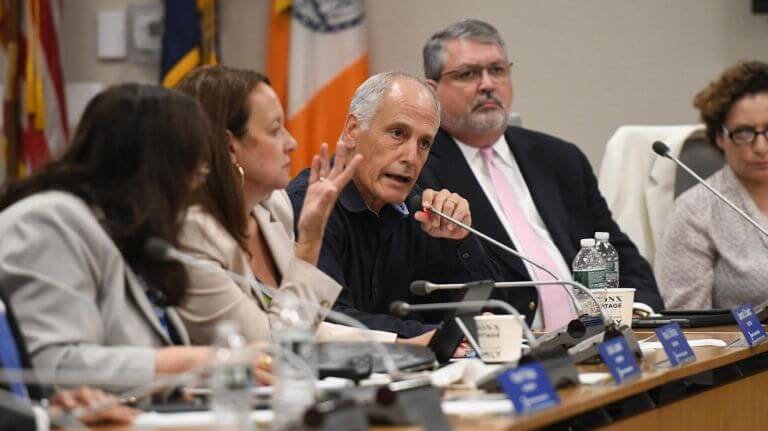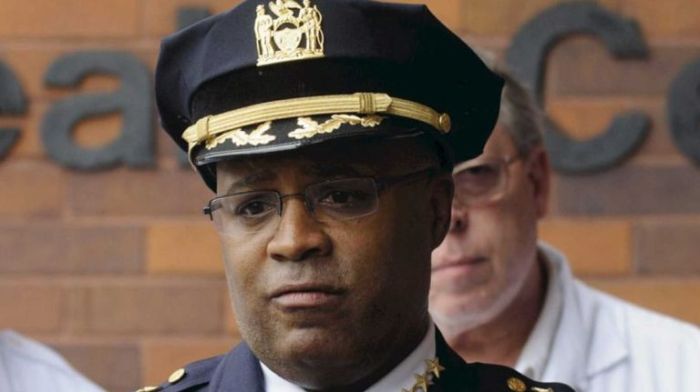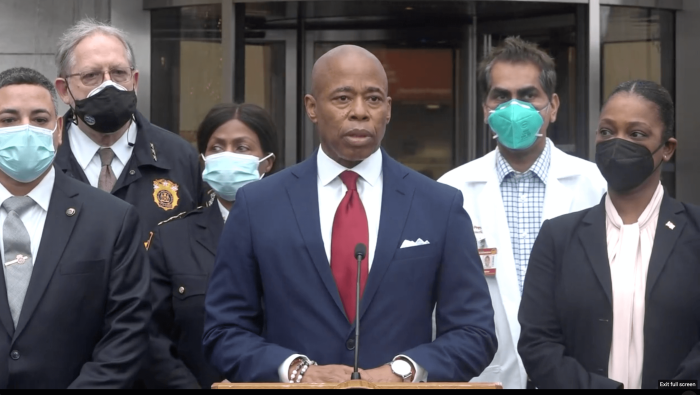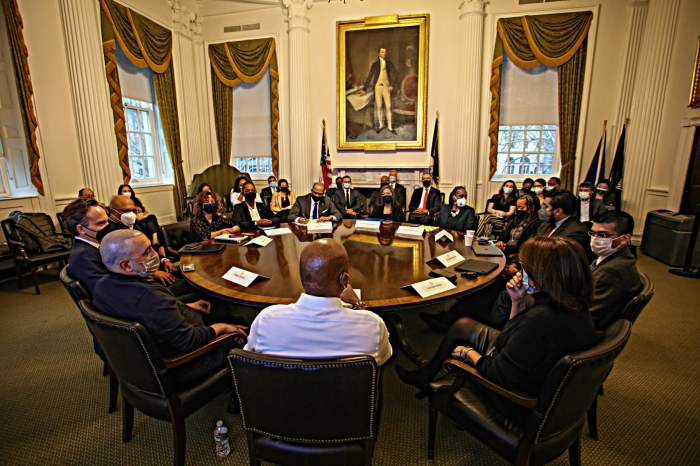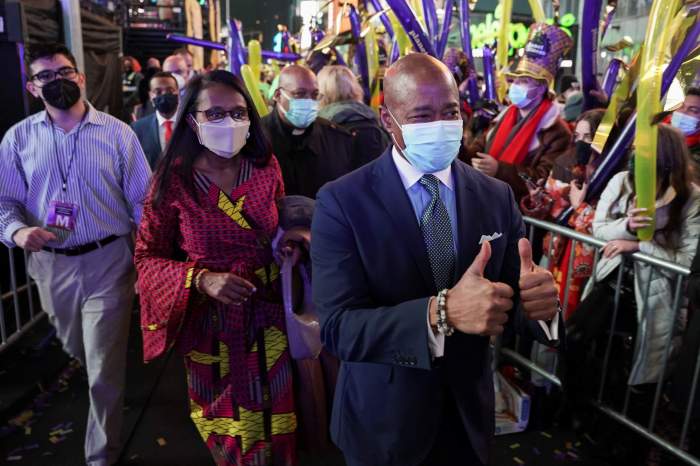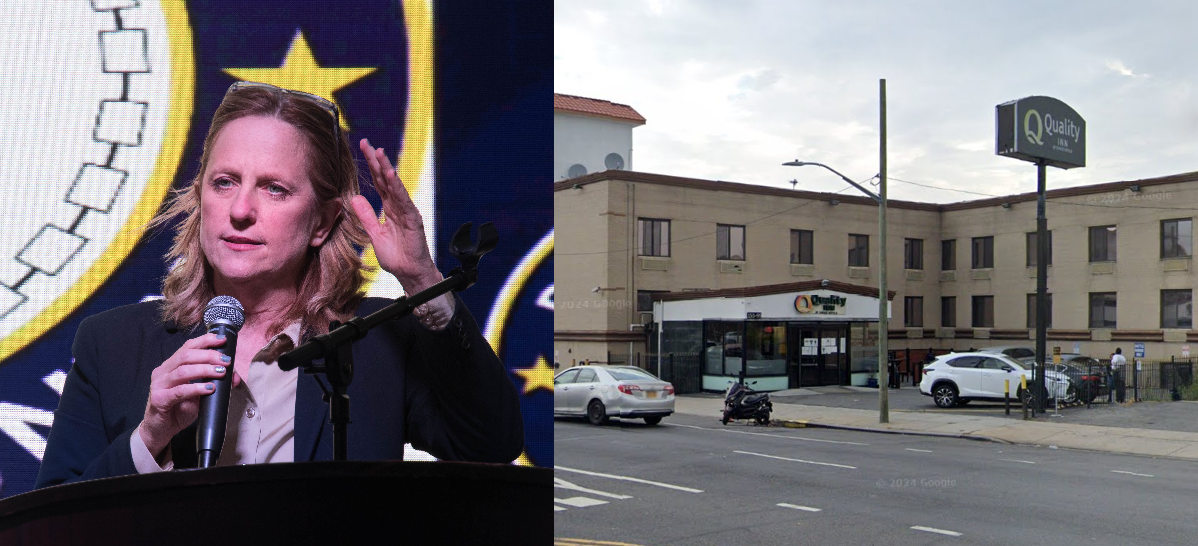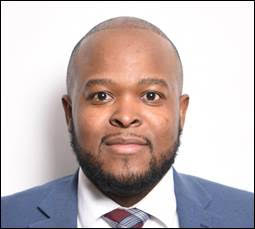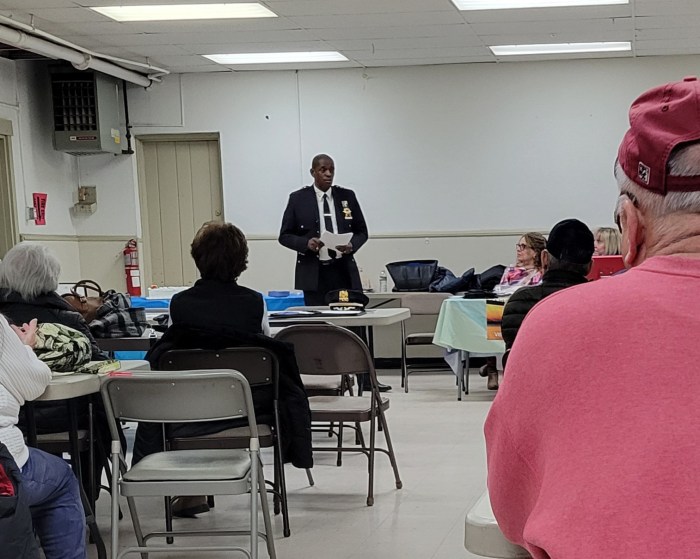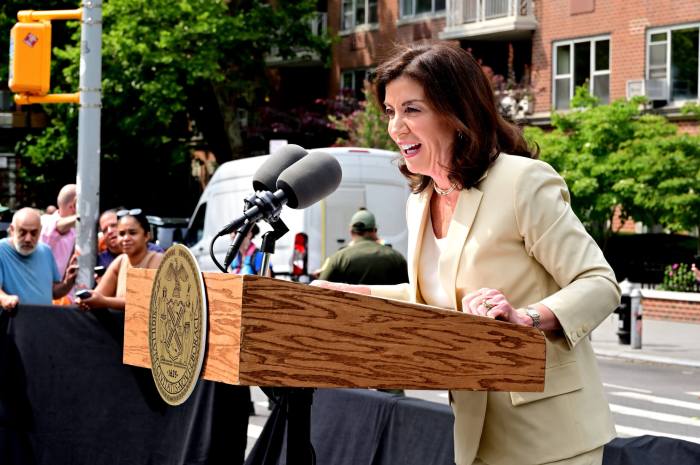Mayor Eric Adams wants his recommended MTA board members to be regular straphangers, not car drivers.
In the weeks ahead, Adams will be able to propose four people for the MTA’s 23-member board, who will represent his administration on the massive state authority in charge of the city’s subways, buses, commuter railroads, and seven bridges and two tunnels.
“We have several names we’re looking at and we’re analyzing, and I think all of these guys and ladies should not be in cars, they should get MetroCards,” Mayor Adams told reporters after an unrelated press conference in Brooklyn on Sunday, Jan. 17.
Hizzoner declined to say who he has in mind for the transit panel or if he intends to keep on any members recommended by former Mayor Bill de Blasio, but lamented that a number of people in charge of the state’s public transit network don’t regularly use it.
“If you really want to improve the system, ride the system,” he said. “I think far too many people are making decisions for various parts of these agencies and institutions and they’re not part of them.”
Rider advocates lauded Adams saying that there are no better transit representatives than seasoned subway and bus commuters.
“If you’re waiting for 18 minutes for a subway, then you should be at that next board meeting expressing your frustration,” said Lisa Daglian, executive director of the MTA’s in-house rider council, the Permanent Citizens Advisory Committee.
“It shouldn’t be an occasional occurrence. It should be a regular, everyday way of life to be underground,” she added.
The mayor’s recommendations could still be vetoed by Governor Kathy Hochul, who controls the MTA; or rejected by the state Senate, which approves all MTA board members.
The MTA full board consists of 17 voting and six non-voting members — there is currently one vacancy — and meets monthly.
Members are tasked with fare and toll increases, changes to service, and overseeing the agency’s mammoth $18.7 billion annual budget.
The governor nominates six voting members, the largest single share, including the chairperson.
In addition to the mayor’s four, county executives representing the city’s suburban commuter belt on Long Island and north of the Five Boroughs also get to propose their representatives.
But the mayor’s picks can use their position as a bully pulpit to steer initiatives in favor of the city and keep the rest of the authority in check, according to advocates.
“By sitting around that boardroom table and asking the tough questions and occasionally pointing out a reality check, they can make sure that the right issues at least get the attention they deserve,” said Danny Pearlstein of the group Riders Alliance.
For example in 2018, then-Mayor Bill de Blasio’s pick for the board and city Department of Transportation Commissioner Polly Trottenberg was able to whip up opposition to former Governor Andrew Cuomo’s controversial plan to pour $1 billion into giving stations cosmetic upgrades without installing elevators or making service run any better.
“She raised the alarm and they were able to delay that project going forward and cast some light on it,” Pearlstein said.
Board member David Jones, who runs the Community Service Society advocating for low-income New Yorkers, spearheaded the city program to provide half-priced MetroCards to commuters at or below the federal poverty line known as Fair Fares in 2019.
Victor Calise, de Blasio’s commissioner of the Office for People with Disabilities, uses a wheelchair and has been a vocal advocate for improving the subway’s dismal record on accessibility, and the MTA has pledged to build elevators at 70 stations in the current five-year capital plan.
Hochul has so far nominated MTA chief Janno Lieber to keep his seat first appointed by Cuomo in an acting capacity last year, and last week announced New York Building Congress big Elizabeth Velez to fill the vacated slot once held by Linda Lacewell, a close ally of the ex-governor.
The legislature is scheduled to consider the governor’s two picks this Wednesday, Jan. 19 at noon.
Another Cuomo confidante, board member Larry Schwartz, has also said he will step aside once Hochul zeroes in on his replacement.
Advocates hope that Adams’s choices will help the MTA rebound from the pandemic and better prioritize buses, which the city can improve by installing bus lanes and traffic signal priority.
“The city has such an integral role to play in making buses run better, in making sure that people who ride the workhorse of the transit system can get where they’re going as quickly as they need to get there,” said Daglian.
Pearlstein said the mayor should propose an essential worker and someone with a disability to be on the board.
“For Mayor Adams to appoint an essential worker, likely somebody from health care, would be an innovative step in the right direction as well as a rider with a disability,” he said.



